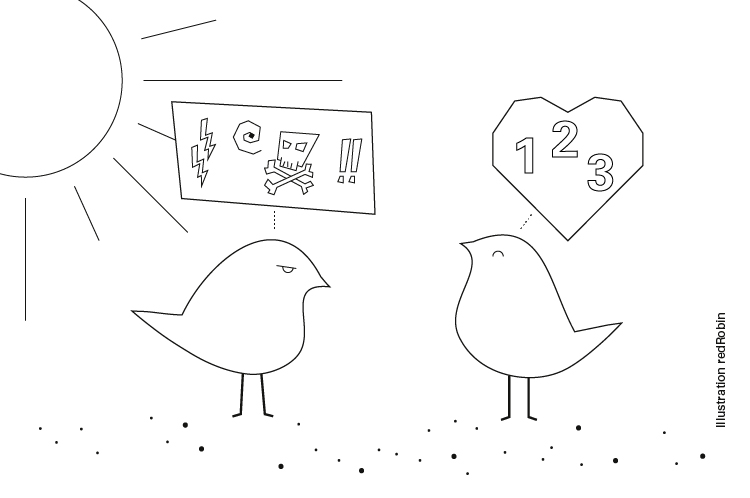There are always reasons to be annoyed, even during the advent season: the weather, too tight deadlines, annoying colleagues, the noise level in the office, the agonizingly slow Wi-Fi, the wrong milk in the morning coffee. And as luck would have it, we encounter most of them at work.
Even if we are firmly convinced that emotions have no place in the workplace, we are not deluding ourselves: They don't stay behind at the door! No matter what you are annoyed about – the slow working progress of your detail-loving colleague, the most recent journalist inquiry, the lost bunch of keys or the lousy soccer match the night before – your counterpart will notice! Because, as you know, one cannot not communicate. However, we are often unaware about our own behaviour, while all colleagues are wondering: "Somebody's in a bad mood today!” Our tip no. 1 is therefore: Recognize your emotions – and then multiply the occasions for positive feelings and deal with the negative ones correctly.
Here's the deal: The bunch of keys is now secured by a carabiner, instead of the soccer match you enjoy a movie in the evening and as far as the thoughtful colleague and similar inconveniences are concerned, tip no. 2 applies: Assume intention! Even difficult behaviour has a goal: So be interested in the motivation to behave in a difficult way. What would your counterpart like to draw your attention to? For example, the colleague from the specialist department (or compliance) may be double-checking the wording of a particular phrase because something is actually missing or remaining unclear. And the unexperienced young editor, who has sent a multi-page catalogue of detailed questions, does not do this for fun or to waste your time, but because he really wants to get to know and understand your company and its range of services in detail.
But we do get angry, especially when:
- we do not feel recognized professionally, as a person, in our current situation and with the values that are important to us.
- commonalities and unifying things are denied.
- we feel restricted in our freedom of decision, respect is lacking or doubts about our reliability arise.
- we are not seen and considered hierarchically or because of our affiliation to a level, group or competence.
- we do not feel respected or valued in our role, function or task.
Often, there are only small misunderstandings between the sender and the receiver, which can be quickly cleared up in the conversation. The anger fizzles out when there is clarity between the two parties on the respective expectations.
And if none of this helps?
What is important: Anger always arises on the relationship level. It is a reaction to one's own disappointed expectations of the other person. For very difficult cases, here is our tip no. 3: Change your expectations and influence your reaction auto-suggestively! This is even possible in both ways, positive and negative. Give it a try! Today, you could be really annoyed that your colleague has used up the milk again, but he has left some coffee! Or that your company is in one of your Tier 1 publications with an excellent, full-page article! What cheek! Or that under the tree there were the Rolex and the brilliant jewellery, but – once again – no pony! In this sense: Merry Christmas!


